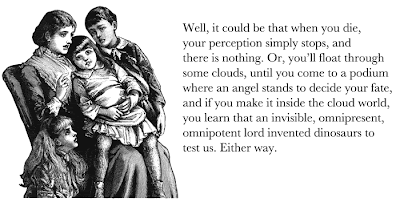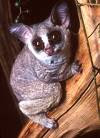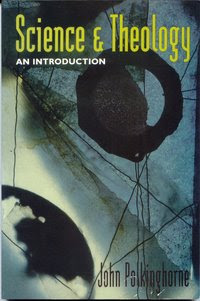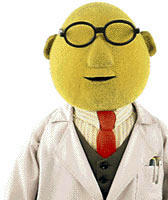Class,
The class average for the journals (61%, C-) was lower than usual due to an unusually large number of late submissions and incomplete journals.
In general I do not give out subjective evaluation marks but will be happy to discuss the composition of the class mark after you get your final grade. In general terms the class subjective evaluation was 69 % (C+) which is about right for this course. Each week each student was marked on preparation, participation and quality of contribution.
The class average for the term papers was the highest ever for this course at 71 % (B-). With that high an average there can't be too much in the way of complaints but I did notice consistent problems with assertion and with language (grammar and punctuation).
With respect to assertion the problem was sometimes that what you said was true but you had not justified the statement so that it looked like simple assertion. In other cases it seemed clear that the student was reading meaning into sources that simply were not in the original source.
With respect to grammar and language:
A sentence consists of a subject, a verb and an object and it is generally good form to make sure that the number of each is in agreement (is vs are etc.)
It is bad form (though not illegal) to start a sentence with "However" because the subject and object of the sentence end up in separate sentences. So it may be OK to use a "However" once in a while for dramatic effect but several of you are addicted to the form. One student had four such howevers in one paragraph.
A sentence that cannot be read in one breath is too long.
A paragraph should have more than one sentence and deal with one topic. A paragraph should not be used to mark where you got tired and decided to go for coffee.
Written English is not the same a written speech (for the love of all that is sacred please learn this lesson before you graduate). Sometimes the voices in your head lie to you. You have to realize that your high school English teacher could not get a "real" job (or did not get their poetry or book published) because they could not write. That means that the "stream of consciousness creative writing" that got you high marks in high school just won't float in University.
Anyway, no one lost a lot of marks for grammar it was the assertion thing that made the difference usually. I privately suspect that the way all the papers twisted into papers on ecology and used the same core references that there was some significant double dipping going on but I am too lazy to make that dog hunt. As Calvin said "Shoot them all and let God sort them out".
So in a few short years your child will be reading a book in your lap and ask you about dinosaurs or your church will ask you to teach an adult or high school Sunday school class where science and religion will come up. I am not so conceited to think that you will remember anything directly from this course but the intention was that our students would go out into the Christian community with a core competence and a confidence when dealing with faith and science issues.
All truth is God's truth no matter where you come across it. Keep asking the question "Why?" and you will eventually find yourself face-to-face with God. Then what do you do?
Take care, have a good summer.
Monday, April 23, 2007
Recent Faith and Science Cartoons
Click on the image to see at full size, click on the link to follow to the comic website

Fisher


Pearls Before Swine

Speedbump

Fisher


Pearls Before Swine

Speedbump
Nature: Red in Tooth and Claw
From "News of the Weird"
American researchers in West Africa believe they've found the first instance of an animal (other than humans) building a multi-step weapon, after observing wild chimpanzees grab sticks from 1 to 4 feet long, sharpen the ends with their teeth, and murderously jab them into deep tree hollows where delicious bush babies may be nesting. Writing in the journal Current Biology, the team even reported observing the chimps tasting the tips after the stabs, to ascertain whether they had actually located a prey. (One of the researchers said the ferocity of the jabbing reminded her of the shower scene in Alfred Hitchcock's "Psycho.") [Tampa Tribune-Washington Post, 2-23-07]
Oh ... what's a bushbaby?

Sort of makes you think when you see the tender and loving chimps in those documentaries huh? I really don't see how this is any conceptually different from the well known behaviour of apes to use tools to fish termites out of their mounds but the escalation of scale is impressive.
American researchers in West Africa believe they've found the first instance of an animal (other than humans) building a multi-step weapon, after observing wild chimpanzees grab sticks from 1 to 4 feet long, sharpen the ends with their teeth, and murderously jab them into deep tree hollows where delicious bush babies may be nesting. Writing in the journal Current Biology, the team even reported observing the chimps tasting the tips after the stabs, to ascertain whether they had actually located a prey. (One of the researchers said the ferocity of the jabbing reminded her of the shower scene in Alfred Hitchcock's "Psycho.") [Tampa Tribune-Washington Post, 2-23-07]
Oh ... what's a bushbaby?

Sort of makes you think when you see the tender and loving chimps in those documentaries huh? I really don't see how this is any conceptually different from the well known behaviour of apes to use tools to fish termites out of their mounds but the escalation of scale is impressive.
Thursday, April 19, 2007
Today In History: April 19

Charles Robert Darwin
12 February 1809 –
19 April 1882
"The old argument of design in nature, as given by Paley, which formerly seemed to me to be so conclusive, fails, now that the law of natural selection has been discovered. We can no longer argue that, for instance, the beautiful hinge of a bivalve shell must have been made by an intellignet being, like the hinge of a door by man. There seems to be no more design in the variability of organic beings and in the action of natural selection, than in the course which the wind blows."
Charles Darwin (c1880)
Thursday, April 12, 2007
Open Thread: Week 12

Humanity
"The issue of free will is a metaphysical issue and its resolution calls for a metaphysical decision. Many theologians will wish to treat as basic the human intuition of free will and responsible moral choice. There is nothing is contemporary science to forbid their doing so." (p. 58)
"There is a consensus among modern theologians that the third chapter of Genesis is not a literal account of a single disastrous primeval incident, but it is a myth (that is to say, not a falsehood but a truth conveyed in narrative form, because only story could carry the necessary depth of meaning. ...
Genesis 3 portrays this experience in the post-Eden life to which Adam and eve were condemned and it diagnoses its origin in a chosen alienation of humanity from God.
...
Such a view is clearly untenable today, considered as an historical account. Earthquakes, volcanoes, hurricanes, and animal death - all antedate the appearance of humanity on Earth by hundreds of millions of years." (p. 64)
Theism
"This feeling is induced by two insistent metaquestions to which we now turn: 'Why is the physical world so intelligible to us?' and 'Why are its laws so finely tuned to the possibility of a fruitful history?' Putting it more briefly, 'Why is science possible'and 'Why is the Universe do special?'" (p. 72)
Divine Action
"One should look for God's presence in the historical contingency (chance) as well as the regularity (necessity) of what is happening." (p. 84)
"Augustine and Boethius gave expression to the belief of classic theism that God perceives the whole of cosmic history 'at once', a timeless act of knowing by the One who is outside time altogether." (p. 90)
"It is scarcely surprising that classical theism endorsed the ineffable idea of primary causality." (p. 91)
"It is theologically incredible that God acts as a kind of celestial conjurer, doing occasional tricks to astonish people but most of the tie not bothering. Such a capricious notion of divine action is totally unacceptable. The main problem of miracle, from the theological point of view, is how such wholly exceptional events can be reconciled with divine consistency." (p. 92)
"Miracles as not to be interpreted as divine acts against the laws of nature (for those laws are themselves expressions of God's will) but as profound revelations of the character of the divine relationship to creation." (p. 93)
"The existence of moral evil is then seen to be the necessary cost of the existence of the greater good of human freedom and moral responsibility." (p. 94)
Christian Theology
"The purpose of this chapter, therefore, will be to illustrate how someone with the experience and habits of thought of a scientist approaches central questions of specifically Christian belief." (p. 97)
"The resurrection of Christ is not something that can be established beyond a peradventure, or understood in a completely straightforward way. If it happened, it is the most significant event in all history and it carries with it profound implications for who Jesus really was. If it did not happen, Christianity is either deluded or reduced to a kind of pious wishing that it had been so. It is not easy to say precisely what 'happen'means for so unique an event, but its significance turns on the truth or falsehood of the fundamental Christian claim that 'Jesus lives!' No one can convince the skeptical against their will, but there is both significant historical and theological motivation of the belief. It is a belief held by the writer of this book."
"There are times when one must cling to the strangeness of experience, resisting the temptation to deny part of that experience in order to achieve a facile, but unsatisfactory, relief from perplexity." (p. 109)
"Most theological thinking (indeed one might say, most profound thinking of any kind) is concerned with trying to steer a path between the errors that lie in the oversimplified extremes of a complex situation." (p. 113)
"Polkinghorne has emphasized that the empty tomb asserts that Christ's risen and glorified body is the transformation of his dead body, thereby implying a destiny in Christ for matter as well as for humanity." (p. 117)
"Theology's expression of its hope must be consistent with science's prediction of physical futility, but theology is entitled to look beyond that and to make use of insights derived from its own conviction of the faithfulness of God." (p. 118)
The Search for Knowledge and Wisdom
"Science provides opportunities foraction but it does not itself tell us how these opportunities should be used. It confers knowledge but not wisdom. In religion, however, belief is inseparable from praxis, for a religious understanding carries unavoidable implications for conduct." (p. 129)
"A most significant aspect of the interaction between science and theology is the latter's provision of a ground for the ethical guidelines within which the great endeavour of science and technology can only rightly be pursued" (p. 133)
Contact

Link to the Internet Movie Database Citation for Contact
Young Ellie: Dad, do you think there's people on other planets?
Ted Arroway: I don't know, Sparks. But I guess I'd say if it is just us... seems like an awful waste of space.
Ellie Arroway: Prove me wrong Fish.
Ellie Arroway: Mathematics is the only true universal language.
Ellie Arroway: Mrs. Constantine? May I have a word with you?
Rachel Constantine: Certainly.
Ellie Arroway: Um, I have a big problem.
Rachel Constantine: Yes?
Ellie Arroway: Uh, do you know where I can find like a really great dress?
Ellie Arroway: l read your book.
Palmer Joss: Here we go.
Ellie Arroway: You want me to quote you? "lronically, the thing people are most hungry for; meaning,is the one thing science hasn't been able to give them."
Palmer Joss: Yeah.
Ellie Arroway: [humorously] Come on! lt's like you're saying that science killed God. What if science simply revealed that He never existed in the first place?
Palmer Joss: I think we're gonna need to get some air.
Ellie Arroway: Oh?
Palmer Joss: [takes two champagne glasses] And a few more of these...
Ellie Arroway: So what's more likely? That an all-powerful, mysterious God created the Universe, and decided not to give any proof of his existence? Or, that He simply doesn't exist at all, and that we created Him, so that we wouldn't have to feel so small and alone?
[Ellie challenges Palmer to prove the existence of God]
Palmer Joss: Did you love your father?
Ellie Arroway: What?
Palmer Joss: Your dad. Did you love him?
Ellie Arroway: Yes, very much.
Palmer Joss: Prove it.
[Witnessing a celestial light show up close]
Ellie Arroway: Some celestial event. No - no words. No words to describe it. Poetry! They should've sent a poet. So beautiful. So beautiful... I had no idea.
Ellie Arroway: I... had an experience... I can't prove it, I can't even explain it, but everything that I know as a human being, everything that I am tells me that it was real! I was given something wonderful, something that changed me forever... A vision of the universe, that tells us, undeniably, how tiny, and insignificant and how... rare, and precious we all are! A vision that tells us that we belong to something that is greater then ourselves, that we are *not*, that none of us are alone! I wish... I... could share that... I wish, that everybody, if only for one... moment, could feel... that awe, and humility, and hope. But... That continues to be my wish.
Subscribe to:
Posts (Atom)


